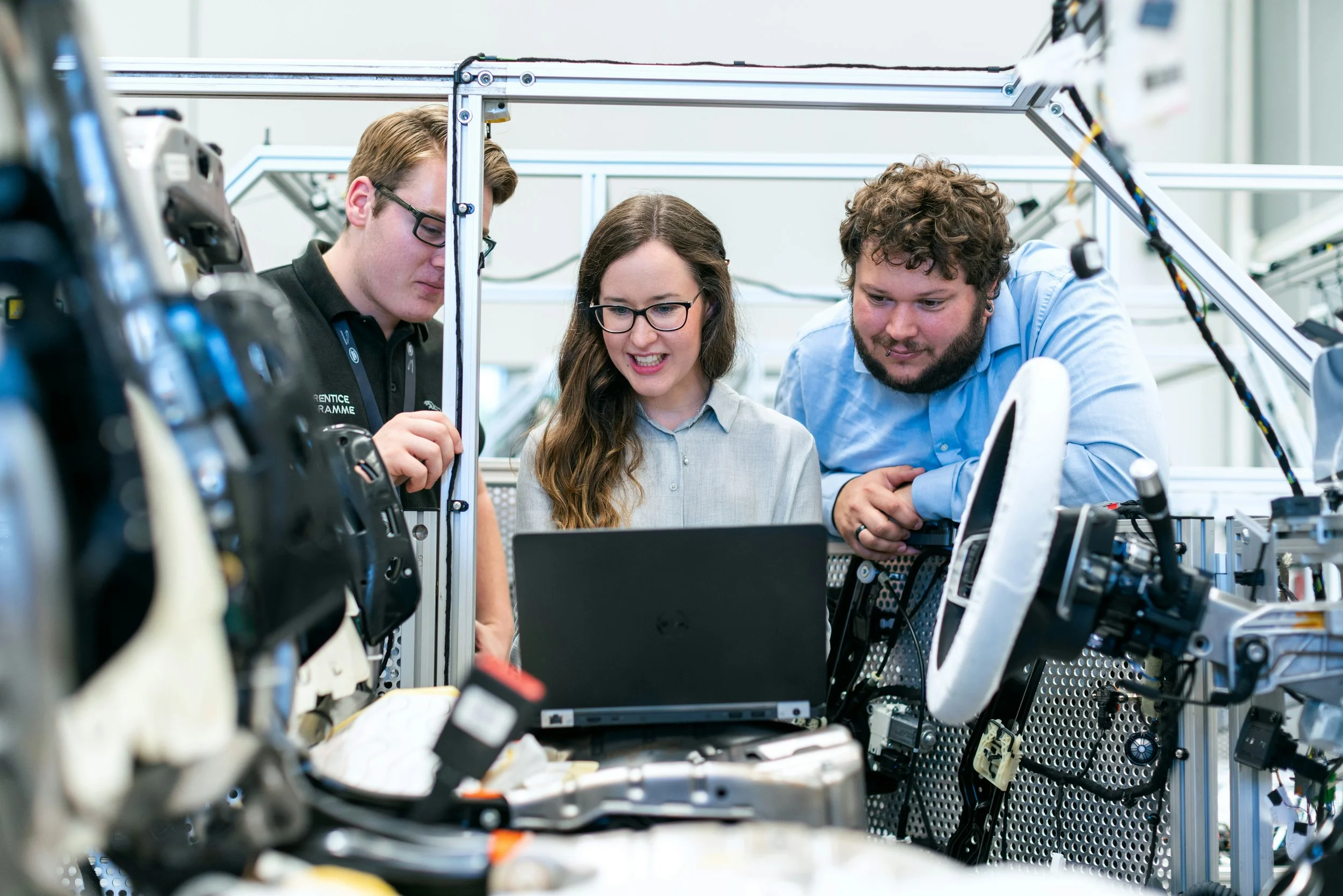AI Advances, These Jobs Stay
Work News | New Stardom
Trend Analysis
Photo by ThisisEngineering
Artificial intelligence is automating routine tasks across industries, driving many layoffs in office and support roles. Still, professions that rely on technical skill, physical presence, or specialized knowledge remain essential and are growing in 2025.
Healthcare & Medicine: Core Skills, Shifting Practice
AI is making inroads in diagnostics, workflow, and even basic medical reasoning. Yet, the OECD’s Artificial Intelligence and the Health Workforce (2024) concludes, “No respondent believed that AI would replace most physicians.” Real-world medicine is rooted in complex judgement, ethics, clinical interaction, and hands-on care.
AI will handle some diagnostics and admin, but the daily work of doctors, nurses, and therapists, actual patient care, remains a profoundly human business. Digital health, AI oversight, and multi-disciplinary teamwork are becoming core medical skills.
Life Sciences, Chemistry & Pharma
Automation is shaking up bench chemistry and pharma, but chemistry professions are still expected to grow by about 10% this decade.
What’s changing? Labs are blending computational tools, AI-driven drug discovery, and automated workflows with traditional science. Roles like “Computational Chemistry Lead,” “AI Drug Discovery Specialist,” and “Digital Health Integration” are on the rise. Chemistry and life sciences will keep rewarding those who cross boundaries: data, informatics, regulatory, manufacturing.
Biomechanics & Biomedical Engineering
The U.S. Bureau of Labor Statistics projects bioengineering and biomedical engineering to grow 5% this decade, outpacing many other technical roles. Growth is even faster in specialized segments (prosthetics, sports tech, rehab engineering).
Why? The field sits where machines meet bodies. Designing, testing, and validating human-facing devices demands interdisciplinary knowledge, biology, engineering, clinical science, and hands-on problem solving. AI supports, but cannot replace, this blend.
Systems & Infrastructure Engineering
Large-scale construction, renewable energy, data centers, grid management, these are complex systems where on-site expertise, adaptation, and risk management cannot be automated out.
Civil engineers design and maintain bridges, roads, and waterworks. Electrical and energy engineers keep grids, wind farms, and solar plants humming. Data centers, the AI backbone, need specialists for planning, cooling, network integrity, and rapid response. Industrial engineers, project managers, and skilled site teams drive everything from metro lines to airport retrofits.
World Economic Forum analysis puts infrastructure roles and building trades among the largest absolute growth categories.
Defense, Drones & Autonomous Systems
Drone operations, cybersecurity, and military engineering demand human oversight, rapid adaptation, and real-time judgment, capabilities no AI system replicates. The shift is workforce-driven as much as technological, with growing demand for engineers, analysts, drone pilots, and security specialists. Policy, safety, and accountability keep these professions indispensable.
Skilled Trades, Maintenance, and Human-Interaction Professions
Jobs that demand manual skill, on-site problem-solving, or direct care remain some of the most resilient in 2025. Electricians, plumbers, HVAC technicians, and mechanics are in high demand across Europe and globally, as infrastructure ages and the green transition accelerates. Hospitals and care homes are struggling to hire enough nurses, therapists, and social care workers, despite advances in automation. These roles require adaptability, physical presence, and trusted judgment, again qualities AI cannot replicate. In the wake of recent labor shortages, governments are funding new vocational programs and apprenticeship schemes to attract more workers into these critical fields. Skilled trades and care work are are seeing rising wages and new pathways for career advancement.
AI, Data & Compliance
The more AI spreads, the more experts are needed to build, deploy, and audit it. The 2025 WEF report lists “AI/ML specialists” and “big data engineers” as the top growth roles worldwide. Human oversight in legal, risk, and compliance is indispensable. Negotiation, ethics, and regulatory navigation depend on judgment and accountability that technology can’t deliver.
There are no certainties but the closer a job sits to the body, the patient, the physical world, or the edge of ethics and law, the harder it is to replace. At the same time, soft skills, digital fluency, and domain depth count more every year.
Follow global work and job trends. Subscribe to New Stardom’s newsletter.
This work is funded directly by readers who value independent reporting.
If you find this useful, you can support New Stardom’s independent journalism.
Read Next
Have insights on work and the future of work? Submit an opinion piece to New Stardom. Love work and career books? Explore our fun workplace book collection.
New Stardom is an independent magazine covering the Future of Work, AI, and emerging job trends.



